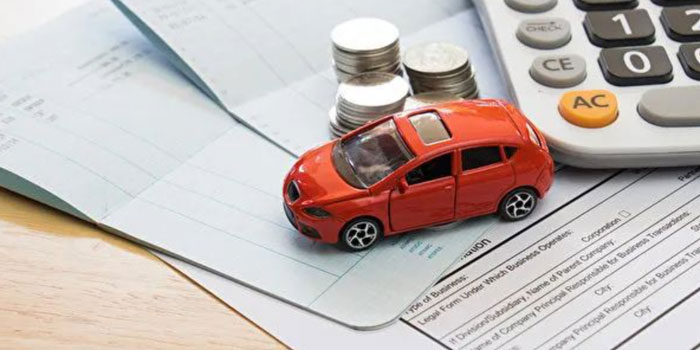Are you in the market for a house and have been wondering how much down payment is required? You may have heard numerous figures thrown around, from no money upfront to 20% of the sale price.
We're diving into the full range of down payments available to help you understand your options and decide on buying your next home.
So that you can find what works best for you! Keep reading to better understand down payments and determine which is right for you.
Overview of down payment requirements for different types of mortgages
When buying a house, one of the most important factors is how much money you'll need for a down payment. The amount of your down payment can significantly impact your monthly mortgage payments and the total cost of your home. Here's an overview of the different types of mortgages and their typical down payment requirements.
Conventional Loans: Conventional loans are typically the most common type of mortgage and usually require a down payment of at least 5% of the purchase price. You can get a conventional loan with a smaller down payment, depending on your credit score.
FHA Loans: FHA loans are government-insured mortgages generally requiring a down payment of 3.5% of the purchase price. The FHA allows buyers to get a higher loan with lower credit scores and may allow for gifts or grants from family members to help cover the down payment.
VA Loans: VA Loans are offered by the Department of Veterans Affairs for certain qualified veterans and require no down payment.
USDA Loans: USDA loans are government-backed mortgages with more lenient credit score requirements than conventional and FHA loans but still require a downpayment of 3% or more.
In addition to the types of mortgages listed above, other loan programs are available with lower or even no down payment requirements. A mortgage lender can guide which loan program fits your budget and financial situation best.
Explaining the Minimum Down Payment and its Benefits

One of the most important considerations when purchasing a home is the minimum down payment required. Generally speaking, buyers are expected to pay a percentage of the purchase price upfront as part of their mortgage debt. This money may come from savings or other sources such as family or friends' loans.
The benefit of a down payment is that buyers can reduce the amount of their mortgage debt and possibly get a lower interest rate on their loan. This helps to make the overall cost of purchasing a home more affordable.
Additionally, when making a larger down payment, buyers may be able to avoid paying Private Mortgage Insurance (PMI), which can save hundreds of dollars every month.
It is important to note that the amount of money you will need for a down payment depends largely on the type of loan and lender you use. Be bold and shop for the best deal, as different lenders may have different down payment requirements.
By understanding how much down payment is required for a house purchase, buyers can make an informed decision about the type of loan that best suits their needs and budget. This will help to ensure that they find a home that is both affordable and within reach.
Researching your options and comparing different lenders will help you maximize your financial resources and secure a home that is right for you.
How to Use Gifted Funds as a Down Payment
When considering how much down payment is required for a house, it's important to know that you can use gifted funds as part of your down payment. Gifted funds are money gifts from family members or other individuals who wish to help the homebuyer pay for their home purchase.
To use gifted funds as part of a down payment, the lender will typically require documentation to prove that the gift is not a loan and does not need to be repaid.
This may include a gift letter from the donor stating that they are giving you the funds as an outright gift with no expectation of repayment. The lender might also require a bank statement showing the funds have been deposited into your account.
Once you've provided the necessary documentation, the lender will likely count the gifted money as part of your down payment. This can be a great way to reduce the cash you need to save for a down payment.
However, it's important to note that the gifted funds are only sometimes counted as part of your down payment for all loan types. For example, some loan programs require that at least 3.5% of the down payment comes from the borrower's funds to be eligible.
Tips for Boosting Your Savings So You Can Make a Bigger Down Payment

If you're lookiyou'remake a larger down payment on your house, there are some steps you can take to help boost your savings. Here are five tips to consider:
1. Maintain strict budgeting and save a portion of each paycheck:
You'llide what percentage of each paycheck should be allocated towards saving for a down payment. Start small and gradually increase this amount over time to help you reach your savings goals.
2. Take on additional work or side gigs:
Consider taking on extra hours at work, freelancing, or starting a side business to earn more money that can be funneled towards your down payment goal.
3. Automate transfers from your checking to savings:
Automatic transfers are a great way to ensure you're considering you're saving money.
4. Take advantage of employer matching:
See if your employer offers matching contributions and take full advantage of this perk - it's essentially free money that can go towards your down payment.
5. Cut back on expenses:
Reducing expenses like eating out, entertainment, and travel can help you save more money.
FAQs
How much money do I need to buy a house?
The money you need to buy a house will depend on the mortgage loan I apply for. Conventional mortgages require a minimum down payment of 3%, while FHA loans have a minimum down payment of 3.5%. Other mortgage programs like VA and USDA loans may not require down payments.
What is the minimum down payment for a house?
The minimum down payment for a conventional loan is generally 3%, while the minimum down payment for an FHA loan is 3.5%. VA and USDA loans do not require down payments, though other fees may be associated with these programs.
What are the benefits of making a larger down payment?
Making a larger down payment can have several benefits. Most notably, it reduces the interest you’ll pay on your loan over its life and may help you secure a lower mortgage rate.
Conclusion
understanding the down payment process and requirements is an important part of mortgage financing for potential home buyers. A minimum down payment is required if you'll have a house, but there are benefits to putting more money down. Interest rates may be lowered, and PMI can be avoided by putting 20% or more down.




